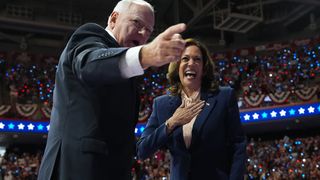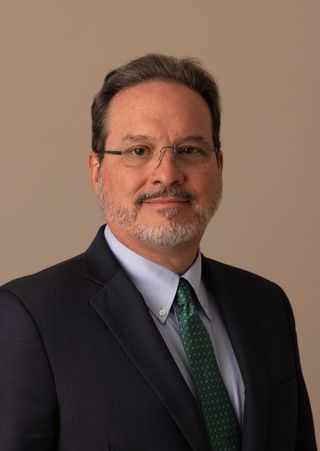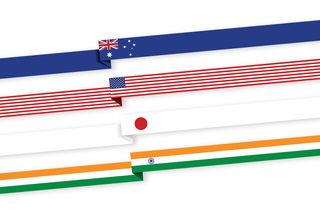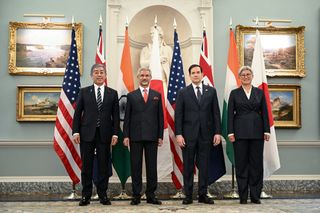On Tuesday night AEST Kamala Harris announced her pick for US vice-presidential candidate: Governor Tim Walz of Minnesota.
Political scientists and journalists debate how much the vice-presidential selection matters to the outcome of presidential races. One potential impact is on the electoral map.
By that calculation Governor Josh Shapiro of Pennsylvania would have been the logical choice since his state has the most electoral votes of any of the swing states. But a vice-presidential candidate has not won a contested home state for their team in many decades. And while Shapiro is popular in his home state, he has been opposed by parts of the progressive left and the teachers unions nationally because of his support for Israel and for school choice.
Walz has no real enemies in the Democratic Party so in that sense he was a safe choice. Other factors such as his personal rapport with Harris would matter as well, since the vice-president sits only a few metres from the Oval Office in the White House. But the main reason Harris went with Walz is that he is the most effective messenger the Democrats have right now for a fight with Donald Trump and JD Vance.
For a Republican campaign aiming for votes in small towns across swing states such as Pennsylvania, Wisconsin and Michigan, Walz is a formidable foe.
The Minnesota Governor was a small-town high school social studies teacher, a state championship-winning football coach, a card-carrying member of the National Rifle Association and the highest ranking non-commissioned officer in the history of the US congress, having served as command sergeant major in the Army National Guard.
Unlike Trump and Vance, he did not go to elite Ivy League universities and, except for his time in congress, almost his entire life has been spent in the “real” America.
The power of that CV was demonstrated when he won a previously impenetrable Republican US House of Representatives district in his first big campaign in southern Minnesota in 2006.
Walz’s messaging talent was on display for the whole country two weeks ago on the popular MSNBC show Morning Joe when he skewered Trump and Vance by saying they knew nothing about small-town America and observing that the Republican candidates were “just weird”.
Trump usually owns the nickname game, but the “weird” label went viral, and Trump and Vance have struggled to find an effective counter ever since.
The Republicans have been quick to attack Walz on policy since he has the most progressive record of any of the vice-presidential candidates under consideration by the Democrats. Walz has used his razor-thin majority in the Minnesota legislature to pass laws on climate, police reforms, trans rights, school lunches and legalising marijuana that delight progressives and upset Trump voters.
The real question is whether the Republican criticism will stick with moderates and independents. Walz does not look or sound like a progressive at all and is effective at dismissing criticism of his social policies by pragmatically explaining their merits the way a football coach would talk to the team before a game.
In a non-scientific survey of a half-dozen veteran national security officials of the Bush and Trump administrations over dinner in the US last month, I found Walz was the most compelling of the names being floated for vice-president at the time because of who he is rather than what he did as governor.
Walz is not just a good offensive weapon for Harris; he also reinforces her deflector shields against Trump’s main line of attack. Republicans saw when Harris ran in 2020 that her biggest liability was that people thought she was opportunistic and somewhat fake.
She appears to have overcome that image to some extent, and Walz helps because he exudes genuineness and stands in contrast to Vance, who is dealing with scores of emails sent to The New York Times by former Yale law school classmates on what he used to really think about Trump.
Some conservative commentators were already questioning whether Vance was a good choice in the wake of Joe Biden’s withdrawal from the presidential race and Walz has a chance to keep that doubt alive.
Harris has enjoyed a surprising momentum during the past three weeks. She has closed the polling gap that had opened under Biden and in Nate Silver’s polling model is now slightly ahead of Trump. Her opening line about being a former prosecutor who “knows Donald Trump’s type” worked well. She benefited from Vance’s bad start and then the release of American hostages from Russia.
Now she will probably get some buzz about Walz to carry her into the Democratic National Convention in Chicago from August 19 to 22.
Politics is unforgiving and things could still go wrong for Harris in a close election. A downturn in the economy would be particularly devastating for the incumbent, and Trump may yet come up with the nickname and attack line that sticks. And it is possible that Walz’s initial success as a communicator proves fleeting on the national stage.
One other interesting thing about Walz that may not make US news but should here: he has a real interest in Asia and Australia. He taught for a year in China after university, which sparked a lifelong interest in the region.
In November last year the US Studies Centre hosted Walz and a delegation of Minnesota business, non-government organisation and tribal leaders for a fascinating half-day roundtable at The Mint on climate, economic development and Indigenous empowerment with a group of counterpart leaders from the NSW business, NGO and Indigenous communities. Because Minnesota is also a leader in mining and natural resource economics, there was a logical link to Australia.
But what was striking was how much thought Walz and his team put into designing a program that would be inclusive of voices as diverse as the minerals industries and environmental NGOs, and how pragmatic his problem-solving instincts were in the discussions. One NSW participant lamented that Biden and Trump dominated the news about American politics. “I wish more Australians could see governors like Tim Walz in action,” this person said.
Now they can.









